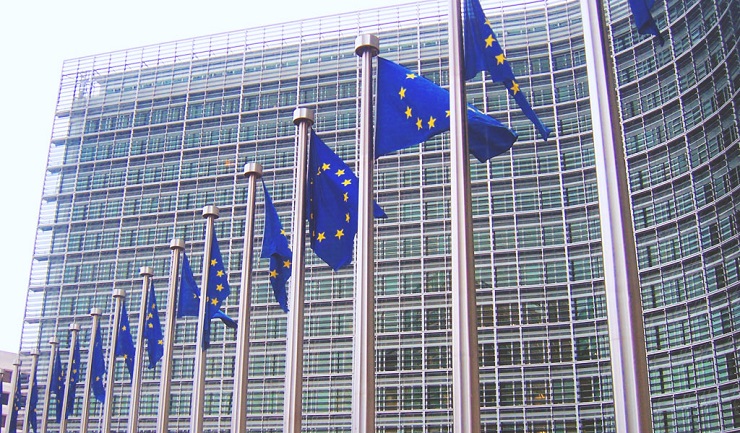The EU-China investment deal is a major breakthrough, one that would allow both actors to expand their economic power. For the EU, its China-policy, largely ‘independent’ of the US, stamps its own rise as a major global player in today’s increasingly multi-polar world. For China, an enhanced access to Europe means a major leeway for its economy in the wake of the on-going ‘trade war’ with the US. While the ‘trade war’ with the US was one major reason for China to push for a deal with the EU and offer serious concessions, even for Europe, the same US-China ‘trade war’ was/is a major reason for finalizing the investment deal. In other words, both the EU and China somehow stand directly affected by the Trump administration’s “America First” policy and the subsequent war of tariffs and sanctions, making European companies suffer loses in a war they had neither started, nor were US allies. The investment deal, in other words, is largely an outcome of growing disaffection between the EU and the US on global political landscape. The in-coming Biden administration will have a hard time repairing the broken economic aspect of the transatlantic alliance.
As it stands, the EU-China deal is an outcome of a growing sense in Europe about the US playing a double-game. While it started a ‘trade war’ and even imposed sanctions, it continues to allow many American companies ‘exceptional access’ to China, while preventing those from Europe, which rely on the US intellectual property rights regimes, to have similar access. European tech executives have been complaining how the so-called ‘trade war’ is shutting them out, while the American companies continue to grow and profit.
In December last year, this situation led about 18 EU states to voice support for establishing a European mechanisms and regimes of trade to reduce and even end their over-dependence on the US. The joint declaration aims to enhance cooperation among Member States and increase investment along the semiconductor value chain on equipment and materials, design, and advanced manufacturing and packaging.
An EU diplomat based in China was quoted to have said that “this declaration shows that European governments want to be less dependent on US technology, although that will take a long time,”, adding that “this process was accelerated by the US sanctions. For European companies, China is such a big market that they need to find ways of serving it.”
The EU-China deal, in this context, is exactly a strong reflection of the EU’s search for ways to become a more independent player. This explains why the EU, notwithstanding the perception that the Biden administration will reverse the existing economic tensions with China, still decided to preempt the in-coming president by signing the investment deal. A crucial reason for this is a growing sense in Europe about the fact that US relations with China are likely to remain hostile, offering Europe an opportunity to exact benefits that would otherwise be difficult to reap.
As EU’s Executive Vice President and Commissioner for trade, Valdis Dombrovskis, the investment deal was a “leveling up” with the US. He was perhaps alluding to not only how the US was actually shutting China down to Europe, but also how the US, since Trump came into power, had practically stopped consulting Europe with regards to its China policy. The US first started a ‘trade war’ without taking European interests into account and then entered into various trade regimes, including the most recent phase 1 trade deal, without Europe. The investment deal is thus Europe’s response to being left out alone. It explains why the US is in shock over the deal.
While the in-coming US national security adviser Jake Sullivan said an early US-EU consultation would have been good for EU-US joint concerns vis-à-vis China, the out-going US national security advisor said that, “Leaders in both US political parties and across the US government are perplexed and stunned that the EU is moving towards a new investment treaty right on the eve of a new US administration.”
Most certainly, this deal does not bode well for Joe Biden’s ambitious plans to “rebuild” the transatlantic alliance in its true sense. In geo-political terms, the EU-China deal shows that Europe does no longer see itself as a ‘junior player’ in what was once US dominated world. Th EU, instead of being fully in the US camp, is creating its own camp with its own rules of the game.
While some political pundits in the US see this deal as a Chinese attempt to create a wedge between the US and the EU, they continue to miss the most important point: the EU’s own growing desire for strategic autonomy. France’s Macron thinks the NATO is “brain dead” and that Europe needs to take matters into its own hands. The deal, despite the EU’s various concerns vis-à-vis human rights conditions in China, shows that it is willing to find a middle ground with China.
This a serious challenge for the Biden administration. Joe Biden, while he was not looking to continue the so-called ‘trade war’, was mainly looking to confront China in global multi-lateral organizations. With the EU now being an economic partner of China and with EU being a major player in all of these global organizations– WTO, ILO, UNCTAD, etc. — the US ability to put a serious and multi-lateral challenge to China stands significantly diluted.
As it stands, Europe, in many ways, now is turning into as a big a challenge for the Biden administration as China, or Russia or Iran.
Salman Rafi Sheikh, research-analyst of International Relations and Pakistan’s foreign and domestic affairs, exclusively for the online magazine “New Eastern Outlook”.

